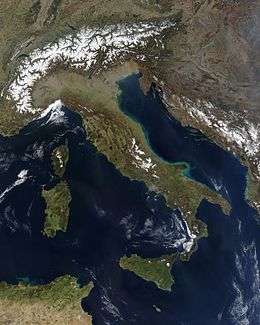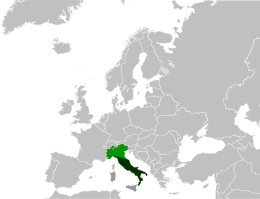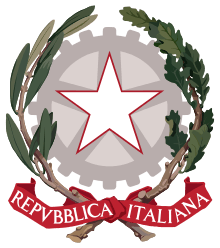Italian Peninsula
Apennine Peninsula | |
|---|---|
 Satellite view of the peninsula in March 2003. | |
 | |
| Geography | |
| Location | Southern Europe |
| Coordinates | 37°N 15°E / 37°N 15°E |
| Area | 131,337 km2 (50,709 sq mi) |
| Highest point | Monte Bianco |
| Administration | |
| Largest settlement | Rome |
| Largest settlement | Dogana |
| Largest settlement | Itself (City-state) |
| Demographics | |
| Demonym | Apenninen |
| Population | 26,171,000 |
| Pop. density | 199.27 /km2 (516.11 /sq mi) |
| Ethnic groups | Italian |
The Italian Peninsula or Apennine Peninsula (Italian: Penisola italiana, Penisola appenninica) is the central and the smallest of the three large peninsulas of Southern Europe (between the Iberian Peninsula and the Balkan Peninsula). It extends 1,000 km (620 mi) from the Po Valley in the north to the central Mediterranean Sea in the south. The peninsula's shape gives it the nickname lo Stivale (the Boot). Three smaller peninsulas contribute to this characteristic shape, namely Calabria (the "toe"), Salento (the "heel") and Gargano (the "spur").
Geographically, the Italian peninsula consists of the land south of a line extending from the Magra to the Rubicon rivers, north of the Tuscan–Emilian Apennines. It excludes the Po Valley and the southern slopes of the Alps.[1][2] All of the peninsula lies within the territory of the Italian Republic except for the microstates of San Marino and Vatican City. Additionally, Sicily, Elba and other smaller islands, such as Palagruža (Italian: Pelagosa), (which belongs to Croatia) are usually considered as islands off the peninsula and in this sense geographically grouped along with it.
The peninsula lies between the Tyrrhenian Sea on the west, the Ionian Sea on the south, and the Adriatic Sea on the east. The backbone of the Italian peninsula consists of the Apennine Mountains, from which it takes one of its names. Most of its coast is lined with cliffs.
The Italian Peninsula's location between the centre of Europe and the Mediterranean Sea made it the target of many conquests.
The peninsula has mainly a Mediterranean climate, though in the mountainous parts the climate is much cooler. Its natural vegetation includes macchia along the coasts and deciduous and mixed deciduous coniferous forests in the interior.
Modern countries and territories
Political divisions of the peninsula sorted by area:
| Country/ Territory |
Peninsular area | Description | |||
|---|---|---|---|---|---|
| Population[3] | km2 | sq mi | Share | ||
| 26,140,000 | 131,275 | 50,686 | 99.9531% | Occupies almost the entire peninsula | |
| 31,887 | 61.2 | 23.6 | 0.0466% | A north eastern enclave of peninsular Italy | |
| 829 | 0.44 | 0.17 | 0.0003% | An enclave of Rome, Italy | |
See also
References
- ↑ De Agostini Ed., L'Enciclopedia Geografica - Vol. I - Italia, 2004, p.78
- ↑ Touring Club Italiano, Conosci l'Italia - Vol. I: L'Italia fisica, 1957
- ↑ Population includes only the inhabitants of mainland Italy (excluding Northern Italy, Sicily, Sardinia, San Marino, and Vatican City).
External links
![]() Media related to Italian Peninsula at Wikimedia Commons
Media related to Italian Peninsula at Wikimedia Commons
Coordinates: 42°00′N 14°00′E / 42.000°N 14.000°E
